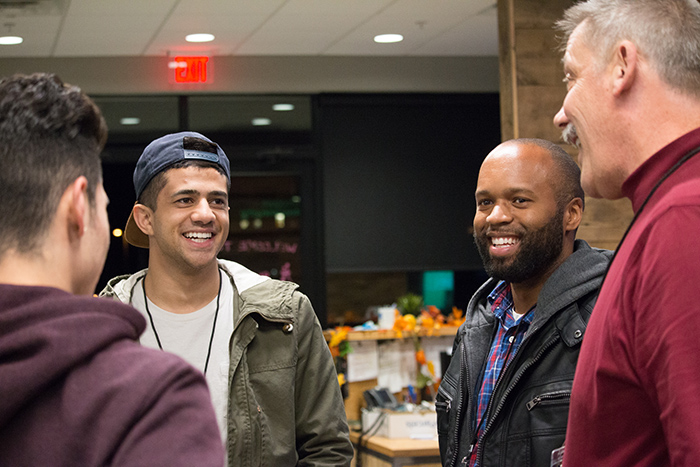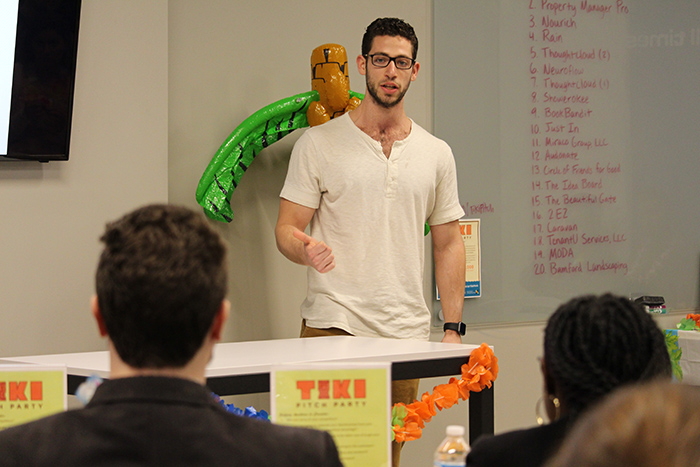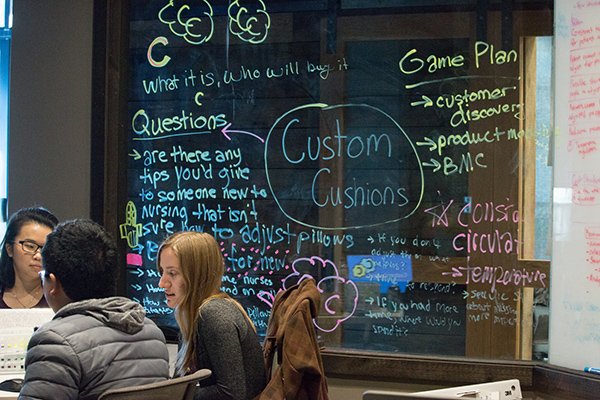How many times have you heard someone in their 20’s say, “Why don’t they teach us this in school”?
If you’re anything like me—an entrepreneur— you’ve heard it more times than you can count.
Is this petty, millennial discontentment? Or, is it a genuine problem?
For large, traditional institutions to be caught up with the workforce at this point would be tough. The rate of change in tech and business over the last 10 years is mind boggling.
It’s understandable, but that doesn’t make it okay.
Just because we weren’t taught all the relevant skills and knowledge to be successful, that doesn’t mean we don’t need to learn them.
- Did you learn how to evaluate 401Ks, IRAs, Roth IRAs, Roth 401Ks, target date funds, annuities, ETFs, day trades, and equities against each other? What about CDs?
- And, how many of you are insecure about your savings / financial strategy?
- What about taxes? Did anyone teach you to strategically balance your personal & business expenses with income while avoiding excessive tax liability?
- At 27, I was lucky enough to connect with a CPA who formerly worked at the IRS and knew the tax code incredibly well. He saved me thousands on my taxes in 2016.
- Mind you, I do have a Master’s in Business Administration. Is it fair that I paid so much more in 2015 for being poorly educated in tax law?
What about practicality in business?

We all know entrepreneurship is the driving force behind America’s robust economy. It’s what sets the U.S. apart from so many others.
So, why don’t universities teach us more practical business skills? Concepts like innovation and entrepreneurship?
The salient concepts in entrepreneurship are: creativity, grit, innovation and perseverance.
All these characteristics dramatically improve a person’s contribution to the organization, whether that’s a Fortune 50, or a startup.
Unfortunately, these leadership skills and characteristics aren’t a priority.
I found being a creatively-driven person harmed my applications at top jobs.
I’m embarrassed to say this, but countless large companies declined me over the four years I spent searching—brands like VW, Booz Allen, Google, Cole Haan and more shrugged me off.
All I wanted was a chance to work in marketing, as a creative problem solver and innovator.
After serial disappointment, I decided it was time to shamelessly focus on my analytical/management skills.
I soon got a job at a Fortune 50 firm as a marketing strategist.
Even though I didn’t know what I was doing.
Once I was in the door, my bosses were thankful to find out I was creative, gritty, innovative and persevering.

It Can Be Learned, Trust Me
I still had to learn all the analytical methods we used internally at my new employer. So I took a class on our big data tools and learned the needed skills within three months of employment.
By the time I left, I was running all the big data analysis for our group. I’d clean & analyze the data and make strategic recommendations for the whole team.
It became evident that “analytical” and “management” skills could be learned. Even by someone with dyslexia, like myself.
Or worse yet, a creative-minded and innovative person.
Fake It ’til You Make It
I had to mask my creativity to get the job.
Once I was hired though, the unexpected happened. My creative problem-solving became the biggest value driver I had to offer the organization.
Within 6 months, I was promoted from analyst to strategist. I saw a pay raise of 36.6% over 2 years—far outside their normal compensation bands of 10% raises annually.
So, the characteristics I had as an innovator were incredibly valuable—both at a large company, or at my startups.

I found University of Delaware’s new program refreshing, and exciting for the future
There is a school, University of Delaware, that’s putting a focus on the importance of practical skills.
They’re fusing business education, creativity and innovation, and they’re packaging it up as a legitimate business degree.
The degree program is called the Master of Entrepreneurship and Design (ENTD). ENTD is the first degree I’ve seen that actually prioritizes design thinking —which is what I studied as an undergraduate—and then merges it with technical innovation skills. Like an MBA, except shorter—11 months—and less expensive.
The program is very relevant for someone like me who’s a creative entrepreneur at heart, but still prefers an advanced degree to gain the structural thinking of a business degree.
As the UD website states, it provides access to successful founders, experienced industry leaders, mentoring and more.
If you’re an aspiring entrepreneur who wants to do a rigorous, but also a relevant Master’s degree that enables you to build businesses, not just manage them, this may be something to consider.
Education vs Experience
We can all pontificate on whether it’s better to start a business, get a job at an innovative company, or to get the education first. I’m still glad I got an MBA. It got me my corporate job. That job lent me a lot of executive experience. This experience is helpful in my B2B endeavors, with my own startup Vea Fitness.
At the end of the day, it depends on personal preference.
Would you rather learn from the experience of others and avoid the hard lessons, or white knuckle it?
I’m happy to share my experience further with college students trying to decide. Feel free to tweet me at @tcgstyle.
Thanks for reading, JM
This is a Contributor Post. Opinions expressed here are opinions of the Contributor. Influencive does not endorse or review brands mentioned; does not and cannot investigate relationships with brands, products, and people mentioned and is up to the Contributor to disclose. Contributors, amongst other accounts and articles may be professional fee-based.

